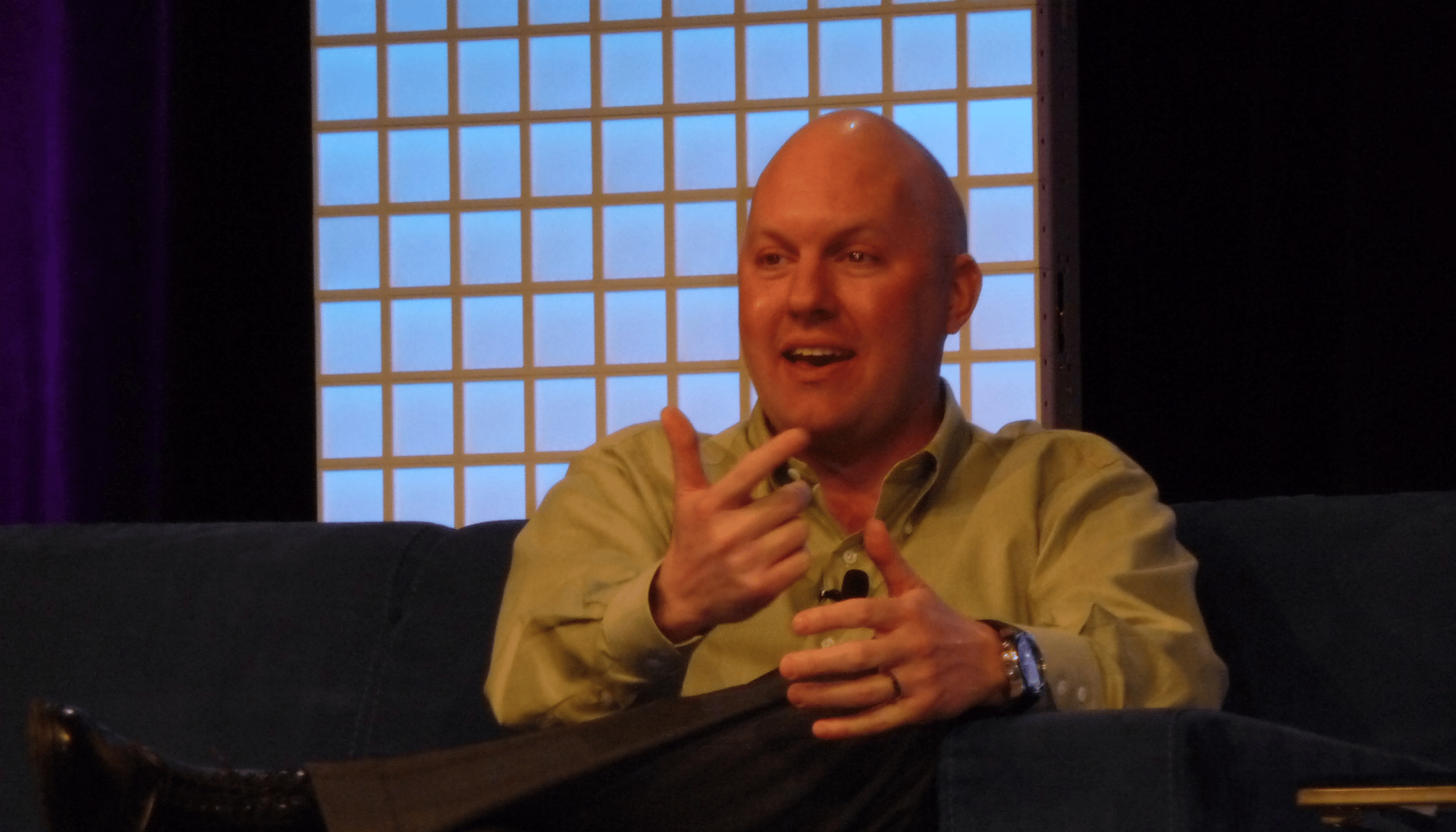
Marc Lowell Andreessen is an American entrepreneur, venture capitalist, software engineer, and multi-millionaire best known as co-author of Mosaic, the first widely-used web browser, and co-founder of Netscape Communications Corporation. He founded and later sold the software company Opsware to Hewlett-Packard. He is also a co-founder of Ning, a company that provides a platform for social-networking websites. He sits on the board of directors of Facebook, eBay, and HP, among others. Andreessen is a frequent keynote speaker and guest at Silicon Valley conferences. He is one of only six inductees in the World Wide Web Hall of Fame announced at the first international conference on the World Wide Web in 1994. – Wikipedia introduction to Marc Andreesen
There are people, and there are great people. And then there are revolutionaries. Zuckerberg, Bill Gates, Steve Jobs, the Google duo… All of them fall under the last category. But if you search up their advice about how to succeed, you’d probably find Gates’ quote doing rounds on Facebook. And like the Sasser worm spreading on Windows PCs, his quote of quitting college and becoming great is infecting a new generation. Here’s my advice to them. Gates also made the company which made Internet Explorer and the Zune player. Take his words with a grain of salt, people. There’s more to it than meets the eye.
Marc Andreessen
Now take Marc Andreessen. His Wikipedia entry puts him on the same footing as Tim Berners Lee, inventor of the modern web. He’s seen good programmers come, bad programmers go, dealt with accountants and naughty secretaries and what not in his life in and beyond Netscape. While not a frequent visitor to his blog, when someone points an entry out to me, the most prominent backer of Rockmelt does get a spot in my “authors to read, if only for a while” list.
The post gave me pause. Joking matters aside, people pursuing their undergrad or masters degrees do require some sound advice from a revolutionary if they are to become great themselves. And Andreessen does not forget his social responsibility here, delivering more than his share of good advice. Applying it to entrepreneurs, though, is another thing all together. Taking the plunge for entrepreneurs is something fraught with risks and what-ifs. However, when you’re young, twenty something and a daredevil to boot, you tend to act like a certain Corellian smuggler in Star Wars.
But one does not go into a fight of the information age with anything less than a remote controlled drone. Plunging unprepared into a startup is like setting up Windows without an antivirus. You crash as soon as your luck dies out. Andreessen, from his long experience of working with successful people, lists those qualities with elegance almost unseen in technical blog writers.
His Advice
One of the most important things he says is to seize any opportunity coming your way. I start with this because daredevils or not, most people hesitate a lot before making a decision. Opportunities are rarer than you think, and wasting precious time deciding might see her move away from your door to knock on someone else’s. This is especially true for entrepreneurs, whose entire careers, if successful, are built upon that one lucky break they got.
That’s not all it takes, though. If you expect opportunity to roll over like a happy dog, you’re very much mistaken. Opportunity is courteous enough to knock on your door, true. But that is where her manners get shot to hell. Once you’ve opened the door, she is the most belligerent, cocky, snobbish and self-obsessed woman you’ve ever had the misfortune to date. It requires a certain set of skills to soothe her bruised ego, to get her to accept your choice of colours for her flat and finally, to coax what you want out of her.
Skills and All
Andreessen recommends having more than one good skill. It might seem obvious. A one-trick pony is a recipe for disaster after all, but why? The reason is quite simple. If you have just one skill, then you’d better be god-damned good at it. If the only thing you do is code, then you need to have helped in making the newest Linux Kernel. Or worked at Google. Else what’s so special about you? Look at that guy, over there. Not only can he code, he can draw too. He can use Photoshop like a pro. Why do I need you when I’m getting two skills for the price of one?
You don’t have to be the best in the world at both your skills (though if you are, no one will complain; be sure of that!). According to Andreessen, you need to be in the top 25%. That’s a pretty rounded off number. A generalization, but I guess he’s recruited too many people in his lifetime for me to say anything other than a staunch, “Yes sir!”
An interesting way to get about this is to follow the ten thousand rule. Popularized by Malcom Gladwell in his book, Outliers, the rule says that innate ability has nothing to do with being the best at anything. Practise makes perfect. More precisely, ten thousand hours of it.
Ten Thousand Hours. I have a life, get real.
I do not kid. Bill Gates, Steve Jobs, Bill Joy, The Beatles, all of them had ten thousand hours of practise under their belts before becoming what they are (or were, as it may be).
Epic! If they spent ten thousand hours, I can probably get by with five! Or maybe two.
Hold your horses there hotshot! You’re an entrepreneur. Opportunity is the golden word for you. It’s a hit and miss thing. Do you have a better chance at roping in that panicking herd of cows or a lasso wielding Wild West cowboy? Take those ten thousand hours to make your spurs, get your horse, wide brimmed hat and that perfect lasso. Opportunity’s slippery. Anything less than your best and she mocks you with a smile.
All right. You convinced me. But ten thousand hours of non-stop practise…
Not non-stop. Don’t be scared, hotshot, there are other things to shore up as well.
Like what?
Communication skills. Engineers and scientists in particular don’t bother with them. Don’t make that mistake. The engineer who can’t be bothered to speak well is perfectly happy slogging it out in IBM or Microsoft. Steve Jobs gave the Macworld Expo Keynote address every year. You may argue that it could’ve been scripted for him, but no scriptwriter possessed Jobs’ Body and gave the address in his place. It was all Jobs’ charisma and style. Investors need that. They need to be reassured that you do have what it takes to get your product/service out.
Great. Do I have to?
Oh yes. And that’s not all. Andreessen recommends knowing some finance. If you don’t know how your own money’s flowing through your pipelines, then it’s pretty easy for someone to make a fool of you. And no. I’m not asking someone to do a masters in Finance or Microeconomics. Just know your way around, that’s all.
Anything else I should know?
About your degree. Idealism is great and all that, but if you think that a Liberal Arts degree is going to take you places, you’re very much mistaken. Andreessen recommends getting a technical undergrad degree. Engineering, Physics, Maths… They all make sense because even if you decide not to do anything in that field, the experience of thinking like one of them is reward in itself. It also demonstrates a level of seriousness to your employer. If you can take the trouble to understand Quantum Mechanics, then by the Gods, you have something in that itty bitty skull of yours. For people who’re already doing an undergrad, a good Masters is recommended if they don’t have a very good undergrad major. Andreessen specifically mentions an MBA. Though if you’re an Indian engineer, chances are that you were already planning on that.
Now if I do not succeed in my startup despite following this formula, you won’t know what hit you…
Disclaimer: These are not my views. For Andreessen’s disclaimer, go to his post. We’re safe, people. Any accusing finger pointed at us will promptly be redirected to the disclaimer and forced to curl on itself, so there!































 Ad-lite browsing experience
Ad-lite browsing experience